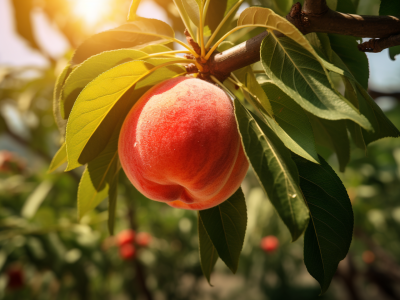Can kiwifruit and peaches be eaten together?
Generally speaking, kiwifruit and peaches can be consumed together, but moderation is important. Detailed analysis is as follows:

Kiwifruit is rich in vitamin C, vitamin E, vitamin K, folate, potassium, magnesium, dietary fiber, and various bioactive components. It has an especially high vitamin C content, excellent antioxidant properties, enhances immunity, promotes collagen synthesis, and helps protect cells from free radical damage. Peaches contain vitamin C, B-complex vitamins, vitamin E, potassium, iron, dietary fiber, and other nutrients, which also have antioxidant properties and help boost immunity.
Both kiwifruit and peaches contain vitamin C. Consuming them together may further enhance antioxidant capacity and improve the body's resistance. The vitamin E they contain works synergistically to better protect cells and delay aging. However, it is important to consume them in moderation. Kiwifruit is cold in nature; excessive consumption may impair the spleen and stomach's yang energy, leading to symptoms such as abdominal pain, diarrhea, and indigestion due to spleen and stomach deficiency-cold. Peaches have a relatively high sugar content, and excessive consumption may cause elevated blood glucose levels.
Healthy individuals can consume kiwifruit and peaches in moderation without significant issues. However, individuals with digestive system disorders, spleen and stomach deficiency-cold, diabetes, or other health conditions should consult a doctor or nutritionist for guidance on dietary planning. It is also recommended to maintain dietary diversity and balance in daily meals, avoiding excessive intake of any single food or nutrient.









